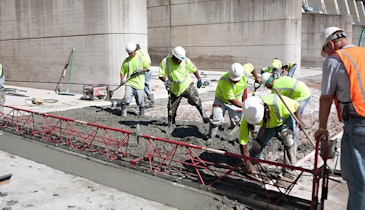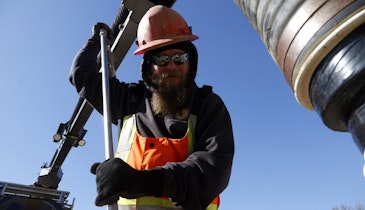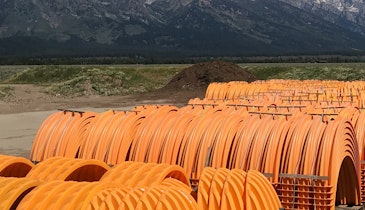This issue of Municipal Sewer & Water contains another story about a smaller community with forward-looking infrastructure managers who could be even more effective if given the resources they truly need.
Haines City, Fla., population 14,000, has a plan in place to handle rapid growth in its sewer system. Under Tim Tippery, superintendent of water distribution and wastewater collection, the city is building a CMOM program to go with its existing inspection, cleaning and root treatment initiatives.
Tippery and his team have done a lot of impressive work. What struck me as I read their story was how much more they would like to do. Money is clearly an issue. For example, they’re doing well with an old (refurbished) pipe inspection system and vehicle, but they don’t have the staff to use it to full effect.
Facts of life?
Especially in times like these, tight budgets are a fact of life. And a community the size of Haines City clearly can’t outfit itself with the same caliber of equipment as, say, Orlando or St. Petersburg.
On the other hand, infrastructure maintenance is critical. Necessary work deferred today will cost more tomorrow. So how can a water and sewer department get local decision-makers to loosen the purse strings and enable the buried pipes to get the attention they deserve?
There’s no easy answer, but to a significant degree it comes down to getting the public to understand the importance of infrastructure care. Even the most fiscally conservative elected officials are usually willing to spend money for something their constituents clearly support.
Some municipal departments have an easier time than others getting the funds they need. Police and fire departments are a good example. That’s partly because people see a direct link between police and fire services and the protection of their lives and property. It’s also because many police and fire chiefs are adept at making the case.
Out in public
In my days as a newspaper reporter, I attended a town budget meeting where a few citizens stood up to complain about a planned increase in spending for the volunteer fire department, mainly to buy a new truck. Some people thought that truck was more an expensive toy than a necessity.
“Chief,” the town chairman said, “would you like to respond to that?” The fire chief walked to the front of the room wearing his official shirt and badge. He explained exactly why his department needed the new truck and other equipment.
But he didn’t stop there. “Remember,” he said, “we’re here to protect this town anytime, day or night. We’ve got 30 volunteers. Every one has gone to school to become a fully certified firefighter. And they are all emergency medical technicians. We’re on call 365 days a year, around the clock. I think you’re getting by real cheap with a real good service.”
That discussion was over. The department’s budget passed without another word. Of course, that wasn’t just because of what the chief said. It was also because of what people already know about fire departments and their importance. They’ve read about firefighters saving people from burning buildings. They’ve seen those trucks go by, sirens sounding and lights flashing.
Now it’s your turn
Now, how would the discussion go if you had to get up in public and defend your department and your budget? Could you talk about it in words as compelling as those the fire chief used? Do you have your own version of the “fire chief speech”?
What might you talk about? How you’ve prevented all stoppages for two years running and kept wastewater out of people’s basements? How you have reduced sewer overflows by 95 percent and so kept local waterways clean and healthy? How your people get regular training and attend trade shows and seminars to sharpen their skills? You might tell what sanitation would be like if your infrastructure didn’t exist, or if it were not cared for properly.
Of course, a short speech given at a public meeting won’t be enough to change your department’s funding picture — real life isn’t that simple. But it certainly could help in the right situation.
And maybe the simple act of developing your “fire chief speech” would help you and your team members appreciate the contribution you make to your community every day. It’s easy to get so close to and so caught up in a job that you forget about or underrate its significance.
The more you appreciate your own value, the more effective you’ll be as an ambassador in every contact with the public. Good ambassadorship leads to public support, and in time that can help lead to the release of funds for the new camera truck, combination cleaner, or other device you’ve needed for years.
So maybe it’s worthwhile to spend some time and develop your department’s “fire chief speech.” And then repeat it, every chance you get.
Comments on this column or about any article in this publication may be directed to editor Ted J. Rulseh, 800/257-7222; editor@mswmag.com.





